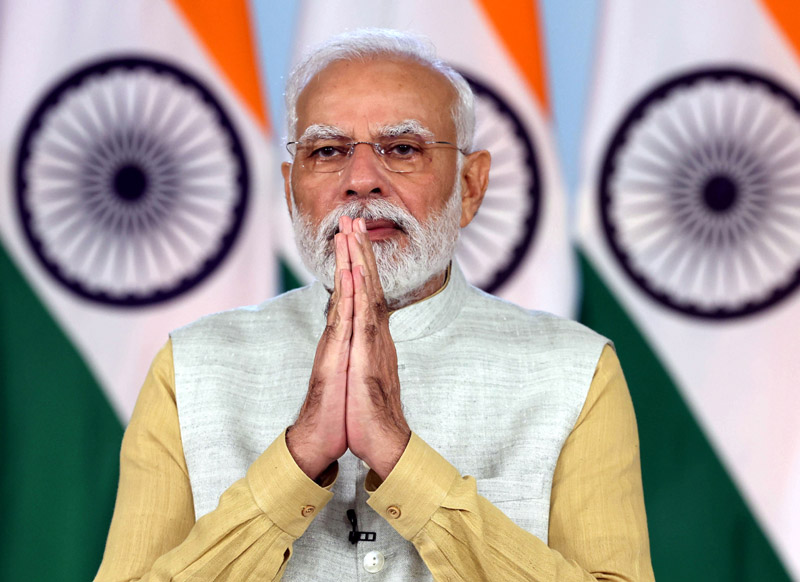
HYDERABAD, Oct 11: Prime Minister Narendra Modi on Tuesday said technology and talent are two pillars of India’s development journey and emphasised on the importance of technology as an agent of inclusion in the country.
In a video message to the Second United Nations World Geospatial Information Congress-2022 being held here, the Prime Minister said the country has been working on a vision of Antyodaya, which means empowering the last person at the last mile in a mission mode.
It is the mission that has guided us in last-mile empowerment and that too on a massive scale, he said.
“Providing banking to 450 million unbanked people, a population greater than that of the United States. Insuring 135 million uninsured people, about the size of the population of France. Taking sanitation facilities to 110 million families and tap water connections to over 60 million families, India is ensuring no one is left behind,” Modi said.
India is a young nation with great innovative spirit, he said. “We are among the top start-up hubs in the world. Since 2021, we have almost doubled the number of unicorn start-ups. This is due to India’s young talent,” the Prime Minister further said.
“In India’s development journey, two pillars are key — technology and talent. Let us look at the first pillar, technology brings transformation. Some of you may have heard that India is the world’s number one in real-time digital payments. If you venture out, you will see even the smallest vendors accept even prefer digital payments,” he said.
It was through technology that the government helped the poor during COVID-19 as the technology-based JAM trinity delivered welfare benefits to 800 million people seamlessly, he further said. The JAM trinity refers to the Centre’s flagship Jan Dhan Yojana, Aadhaar database and a person’s mobile number by which the government credits welfare money into the bank accounts of beneficiaries.
Modi said COVID-19 should have been a wake-up call for the world in taking everyone along and there is a need for an institutional approach by the international community to help each other during a crisis.
He suggested that global organisations such as the United Nations can lead the way in taking the resources to the last mile in our region. Even fighting climate change and technology transfer is crucial.
Explaining the geospatial technology’s role in inclusive development, Modi said the PM GatiShakti Master Plan is being powered by geospatial technology, as is the Digital Ocean platform.
The Digital Ocean platform is a web-based application developed recently by the Indian National Centre for Ocean Information Services (INCOIS) that would help in collating ocean data using geospatial technology.
India has already set an example in sharing the benefits of geospatial technology, the Prime Minister said, citing the example of the South Asia Satellite for facilitating communication in India’s neighbourhood.
“We are using drones to map properties in villages. Using their data, villagers are receiving property cards. For the first time in decades, people in rural areas have clear documents of ownership. You know how property rights are bedrocks for prosperity anywhere in the world. This prosperity can be further accelerated when the women are the prime beneficiaries of ownership,” he said.
The Centre’s public housing scheme has provided homes to nearly 24 million poor families, and women are joint owners of almost 70 per cent of the houses, he said.
On India’s second pillar of talent, Modi said India is celebrating 75 years of freedom and the country has now opened up for bright young minds.
All the data collected over two centuries suddenly became free and accessible and collection, generation and digitisation of geospatial data are now democratised, he said adding that such reforms are not isolated.
He said along with the geospatial sector, the country gave a key boost to the drone industry even as the space sector has also opened up for private participation.
According to an official release, the Prime Minister underscored the endless possibilities that geospatial technology offers. These include sustainable urban development, managing and mitigating disasters, tracking the impact of climate change, forest management, water management, stopping desertification and food security.
He expressed his wish that this conference becomes a platform to discuss developments in such important areas, the official release said. (PTI)

